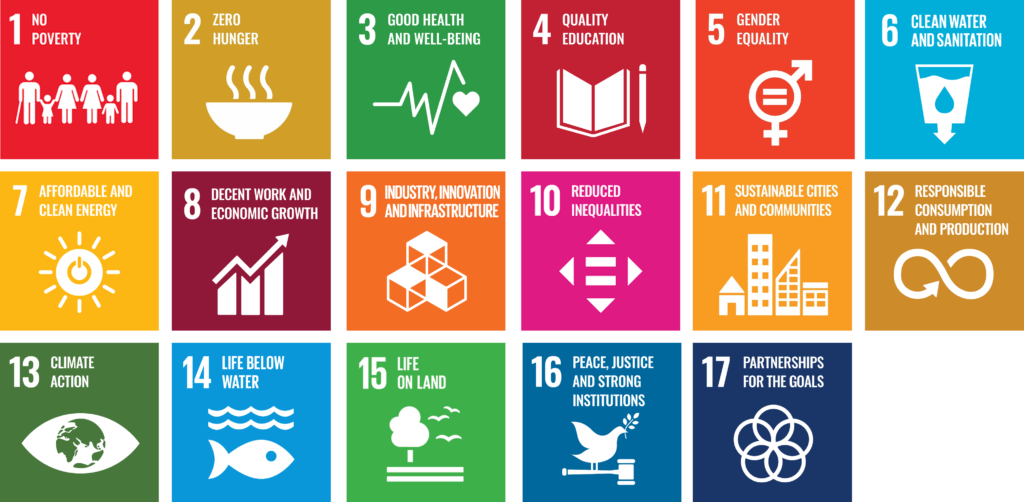At Near East University, we are committed to equipping our students with the knowledge and skills necessary to address global challenges. The newly introduced elective course, “GCC231: Sustainability Development and Education,” aligns with this mission by providing a comprehensive understanding of sustainable development concepts. Students will explore the United Nations’ Sustainable Development Goals (SDGs) and learn how to integrate these principles into real-world projects, promoting social, economic, and environmental well-being. Through critical thinking and hands-on activities, this course empowers future leaders to contribute meaningfully to a sustainable future.

GCC231: Sustainability Development and Education
Common Course – Elective course (Credit: 0, ECTS: 2)
Course Description:
The “Sustainability Development and Education” course emphasizes the integration of sustainable development principles into educational practices. Understanding sustainability is essential for addressing the pressing challenges facing our world today, such as climate change, resource depletion, and social inequality. This course aims to equip students with a comprehensive understanding of sustainable development concepts, encouraging them to analyze and evaluate these issues from social, economic, and environmental perspectives. By exploring the interconnectedness of these dimensions, students will gain insights into how sustainable practices can be implemented to achieve a balance between human needs and the planet’s resources.
A key component of the course is the in-depth study of the United Nations’ 17 Sustainable Development Goals (SDGs). These goals, adopted by all UN Member States in 2015, provide a universal blueprint to achieve a better and more sustainable future for all. The SDGs address a broad range of issues, including poverty, hunger, health, education, gender equality, clean water, and climate action, among others. Students will learn not only to identify these goals but also to understand their importance, relevance, and the strategies required to meet them. The course will highlight the significant role that education plays in promoting these goals, building a sense of global responsibility, and inspiring collaboration to tackle international challenges.
Throughout the course, practical applications and engaging modules will enhance the learning experience. Students will be encouraged to think critically about real-world issues, develop sensitivity towards global inequalities, and explore innovative solutions. They will also have the opportunity to design projects that contribute to sustainable development, promoting social, economic, and environmental well-being. The course encourages students to be active participants in creating a more equitable and sustainable world, equipping them with the knowledge and skills needed to drive change.
- Course Outcomes:
Understand the concept of sustainable development and evaluate its importance: Students will gain a solid understanding of what sustainable development means and why it is crucial for the future of our planet. - Identify and comprehend the 17 Sustainable Development Goals (SDGs): Students will learn about each of the SDGs, including their targets and indicators, and understand how they contribute to global development.
- Recognize environmental, social, and economic challenges that hinder sustainable development: The course will address various barriers to achieving sustainability, such as climate change, poverty, and inequality, and how they interrelate.
- Develop sensitivity towards inequalities and injustice and explore solutions: Students will be encouraged to critically analyze global and local inequalities, promoting empathy and a desire to pursue justice and equity.
- Establish the link between sustainability and human rights: The course will explore how sustainable development is closely linked to the protection of human rights, such as access to clean water, health, education, and a healthy environment.
- Analyze the role of global cooperation and partnerships in achieving sustainable development goals: Students will study the importance of international cooperation and the role of partnerships between governments, private sectors, and civil society in achieving sustainable development.
- Design and implement sustainable development projects that positively impact society and the environment: Practical exercises will enable students to develop and propose projects aimed at addressing sustainability challenges in their communities.
- Increase societal awareness of sustainability issues through educational initiatives: Students will learn how to effectively communicate sustainability concepts and create educational campaigns that raise awareness and inspire action.
- Overall, this course seeks to empower students to be agents of change, equipped with the knowledge, skills, and mindset to contribute meaningfully to the global effort of achieving sustainability. By understanding the SDGs and the role of education in promoting them, students will be better prepared to address the complexities of sustainable development and make a positive impact on society and the world.